noisy andersen windows
My house was built in 1938. Brick/Wood siding.
Just replaced 16 older single pane wood windows w/storms with Anderson Series 400 windows. My problem - the noise from outside has increased with the new windows. Installation company has never heard of this and verified that you can hear more outside noise with my new windows (we did a test between one new window and one of my older windows that still exists). Andersen rep came out today and he said he had never heard of this problem. Both people believe installation was done correctly. I bought new windows for a number of reasons (resale value, energy efficiency, etc.) but never thought about the sound problem. Has anyone ever heard about this problem? I really don't like paying $$,$$$ for new windows only to be able to listen to other people's conversation on my patio (yes, you can here conversation (normal levels). Andersen Corporation is suppose to give me a call but I wanted to do a little homework before talking to corporate office. Thanks in advance.
Comments (46)
raged90403
18 years agolast modified: 9 years agoOne idea that comes to mind is that the glass in your old windows/storms is thicker than the Andersens. The glazing in many new windows is quite thin--two layers of 1/8" glass with a 1/2" air space. If your old windows were 3/16" glass and the storms were 3/16" glass, and the air space between was 2" or so, then I can completely understand why you have the problem. One solution is to re-glaze with thicker glass, but check with your window guy about that option (and how much it will cost).
catherinet
18 years agolast modified: 9 years agoannie,
Question for you. Are you very sensitive to sounds? .......like more-so than most people? The reason I'm asking is because I am. And with our new Andersen windows, I'm finding that they seem to amplify the rumbling sounds I get around here (traffic, etc.). The rest of my family doesn't notice it, but I do. It's supposed to be a real "sound-proof" type of window.Related Professionals
Lockport Kitchen & Bathroom Designers · Northbrook Kitchen & Bathroom Designers · Town 'n' Country Kitchen & Bathroom Designers · South Sioux City Kitchen & Bathroom Designers · Alpine Kitchen & Bathroom Remodelers · Cocoa Beach Kitchen & Bathroom Remodelers · Gloucester City Interior Designers & Decorators · Queens Interior Designers & Decorators · Alamo General Contractors · American Canyon General Contractors · Mountain View General Contractors · San Elizario General Contractors · University Heights General Contractors · Waldorf General Contractors · Security-Widefield General Contractorsearly1
18 years agolast modified: 9 years agoAnother idea - the old windows were looser so the sound dissipated from transfer through several layers of material. The new windows are tighter so the sound travels more "efficiently" through the material. Just a theory.
amerimat
18 years agolast modified: 9 years agowe replaced ours years ago to cut down the noise and it did by well over 75% we can watch tv without the volume blasting, over the years I have notice o one of them thew noise increasing , the problem worn out gasket .
In your case new window , more noise equal nightmare , keep on going after the window Co there is something wrong there , by the way most rep are simple PR and zero building experience , I would not take his statement as final they have a problem and you paid for it , they have a warranty go after before it expire and keep a log on every exchange contractor and window Co . By the way when the work was final did you sign for it? did you get these window thru a large home improvement center , did you pay w credit card , anyone of them all will give you leverage . do not give up ,if they are noisy they will not insulate against heat and cold therefore useless .Annie
Original Author18 years agolast modified: 9 years agoMy whole family has noticed the increase in noise. Not just one window by patio (surrounded by brick) also an upstairs window (surrounded by wood siding). I don't like the idea a reglazing when they are less than two months old. So far the installation company and Andersen rep are willing to see if they can quickly resolve the problem. Of course I have mentioned about searching the web myself for answers. They were surprised you could do this and then I mentioned about how powerful the web is in order to get the word out about anything. I think they got the message. I will look into the thickness of the layers of glass but seems odd that sound would increase going from a 65 year old window to a 2 month old window! I appreciate your help and will use this to my advantage.
Michael_H
18 years agolast modified: 9 years agoAnnie,
The age comparison of the window isn't the issue. It's the dead air space. Before, you had approximately 3 1/4" of dead air space enclosed by the storms and prime windows. You won't achieve that sound barrier with an Andersen window or any other general window of like kind.
Michael
raged90403
18 years agolast modified: 9 years agoMichael,
Not exactly true...glazing options typically include larger air gaps and thicker glass, sometimes even with laminated glass. the best option for deadening sound is to specify 1" double 3/16" glass with one layer being laminated. Sometimes, triple glazing is an option. either one of these options would provide very good sound insulation.
Annie
Original Author18 years agolast modified: 9 years agoSo it couldn't be possible that it is a manufacturing defect? And if the sound has increased are they still more energy efficient? I have emailed the customer service department at Andersen and described the same problem - guess I wait and see what they say.
raged90403
18 years agolast modified: 9 years agoAnnie, all I can tell you is that sound travels most easily across what has the least amount of mass. In simple terms, the heavier and denser a material, the more sound it will absorb (or deflect), and transfer less of it to the other side. A sheet of paper allows sound to pass through very easily. A brick wall allows very little sound to pass through.
Thicker glass can absorb many low frequencies that comprise a lot of the exterior noises typical around buildings: roads, airplanes, etc. Combine thick glass with a larger air space (air is actually a very poor conductor of sound) and what you get is one material that is able to absorb lots of sound and an air space that cannot easily transmit sound to the other piece of glass and ultimately into your house, and you get a pretty good sound insulator. Now add a plastic film sandwiched between two layers of glass (laminated glass) and you get all kinds of sound absorbing capability that I don't have enough room to expand on.
To anwer your question, I don't think that it is a manufacturing defect. That would mean that there is probably a hole somewhere in the window unit letting in the sound. Here is an idea: ask the rep. what the sound transmission value is for your particular window unit. All window units these days have sound transmission ratings. Look at other glazing options for your window and their particular sound transmission ratings. You will notice that the glass has the most effect on this number.
I know, I know...all of this is very technical, especially for a holiday weekend. Sorry about that. Maybe just have a hot dog and enjoy the holiday. I know I will.
Tom Pultz
18 years agolast modified: 9 years agoJust as an FYI, there isn't any "air" in between the glass panes of a thermal pane window. They are typically filled with Argon or an Argon blend.
We replaced an older dining room window and older aluminum sliding patio door with Anderson French doors. We did not notice any increase in noise. I have five other Anderson 400 series windows that I will be installing during our remodel. Hopefully, they will not increase the noise level. Hard to see that they could since what's in there now is gar'bage :-)
Good luck with your problem. Reducing noise transmission is not necessarily an intuitive science. Keep us posted on the progress, or lack thereof.
oberon476
18 years agolast modified: 9 years agoAnnie,
I agree with raged that it is unlikely to be a manufacturing defect. I also agree about density affecting sound transmission, which is known as the Mass Law Equation which he also did a good job of defining.
Unfortunately, glass does not always follow the rules and mass law equation predicted values, based on expected glass performance, don't always work as advertised.
In most cases, replacing older windows will give you a significant improvement in sound performance but, as you have found, not always. I suspect that the windows and storms that you replaced were relatively tight fitting? If the original windows or storms were loose or in very poor condition, then there would have been a much greater amount of sound passing thru them than if they were tight. This is why so many people who replace older windows rave about how quiet the new windows are. The original windows were pretty much sieves for both sound and energy.As Michael suggested, the air gap between your previous window and storm combination probably was the most important part of your sound performance; although, as raged90403 suggested, there are ways with modern units to match or exceed the previous sound level.
First, ensure that the installation was "correct". The number one reason for sound or energy loss with new or replacement windows is sloppy installation. If the installer and the AW rep show you that the install is up to speed, then there may be some options that would not involve reglazing.
This sort of phenomena is not a warranty issue, unless there is something else wrong with the windows. Having more sound coming thru them than you had with your previous units is not inherently an energy performance consideration...in fact, as mentioned, while increasing the airspace between the lites improves sound performance, you actually cause the energy performance to degrade. In other words, a wider airspace, on the order of two inches works great for sound attenuation, but isn't the best for energy performance. A spacing of 1/2" or so (which is about what you have now) may be best for energy performance, but it is not generally the best for sound performance.
Window sound performance can get quite complicated and detailed.
For example increasing the thickness of the glass or going with a triple pane is very often suggested for improved performance, but it doesnt always work that way. In fact, a dual pane with a 1/2"airspace and a triple pane with two 1/4" airspaces have an identical STC (Sound Transmission Class) rating. And, depending on the frequency range, thicker glass can actually pass more sound than thinner glass. And, there are even conditions where a single pane will pass less sound than a dual pane.
If you are interested in this sort of data, I can certainly go much more in depth.
But first, see if there is an installation issue.
Good point about argon fill Tom, but also air is still quite commonly the "fill" in dual pane IGU's. Most places still consider argon or one of the other inert gasses to be an option.
jst63
18 years agolast modified: 9 years agoAnnie - we have the EXACT same problem with Andersen Windows installed 5 years ago.
We have very noisy neighbors (kids playing basketball late at night and lots of yelling), and hear them like they're literally in the room with us. It's not just background noise, but full throttle, blood-curdling screaming. Nice - especially since we also hear this on THE OPPOSITE SIDE OF OUR HOUSE in our Master Bedroom with all of the doors and windows closed tight, and the air conditioning on! I also hear them in my Great Room (albeit, it's on "their side" of our house) OVER THE TV, even when it's cranked up pretty loudly. Needless to say, I think Andersen windows are absolutely totally ineffective at stopping ANY significant sound. Sometimes I think they amplify sound.
In my research as to WHY this is, I found that Andersen 400 and 200 series windows have a very, VERY low STC of 25 - unless you asked for special glazing (we didn't know to). This is apparently because the window has 1/8'' of glass, a 3/8'' air gap, and a second 1/8''. This apparently isn't much. I've also read that you need multiple, different thicknesses of glass (eg: 1/4'' and 3/16'' or something like that, instead of 1/8 and 1/8) to break up the sound. You can find the Andersen STC ratings on their website, under the spec area for the 400/200 series windows.
If the sound problem is bothering you in multiple rooms, I don't know that there's much to be done about it. We've learned to live with it by cranking up the stereo or the TV, which is not a solution I'm overly happy with. And, in my Master Bedroom, I'm installing a Soundproofwindow (soundproofwindows.com) over the existing Andersen window to try to cut down on the sound so that we can get some much needed sleep.
I'd love to hear what you find out from Andersen. It seems like their window is MUCH lower rated than alternative windows from Pella, etc. Wish we had known that when we bought the house, as there's no way I want to go replace a house full of windows with something having a higher STC - it'd cost me tens of thousands of dollars, and be one heck of a huge project.
I sent you an email last night with a bit more and my email address. Let's keep in touch - maybe we can figure out a solution together here.
Jim
Annie
Original Author18 years agolast modified: 9 years agoJim,
Very interesting! I am still in the process of figuring out a solution. i have spoken with a rep from Andersen and he had an independent installer come out and check windows. He thought they were not insulated enough. So this morning the orginal installers came and added more insulation to one of the windows. Don't know if that helped or not. I'm going to see when I get back home. I will say that when I talked to the Andersen rep he did not know about STC ratings - I had asked him where I could find it on their website and he didn't seem to know what I was talking about. I'll keep you posted as I'm getting very tired of my window problem.
raged90403
18 years agolast modified: 9 years agoAs a professional in the construction industry, I hate hearing stories like yours and Jim's. You, unfortunately, were not informed enough to make an intelligent decision about your windows. The dealers and reps did not know enough or did not care enough to educate you and to propose options to you regarding glazing.
However, I do know that there are glazing options available and I think (somebody correct me if I am wrong) you can install new glazing using factory supplied glazing beads (the sticks that hold the glass in the frame) that accomodate the incresed thickness of the glass. Laminated double glass is also an option that can decrease sound transmission.
I think both you and Jim need to to talk to a factory technical representative and ask about glazing options and how to install new glass into an existing frame. That way, you don't need to install new windows or sashes. No it won't be free, and glass is expensive. But it is cheaper than removing old windows and installing new ones.
jst63
18 years agolast modified: 9 years agoThanks, raged..
Do you know what kind of STC ratings are achievable with Andersen replacement glazing, or where we can get that kind of info? If you know of a number to call directly at Andersen, that'd be very helpful as well. (No idea how to get ahold of a factory tech rep unfortunately, but I guess we could just call Andersen directly and hopefully they can track one down).
I do know that our windows were insulated well - or so I think! (I personally tucked additional insulation in around them). But how do we check this? When I listen to the noise coming in, it seems to be coming in thru the glass, not around the frame. So, I'm guessing it's that cursed 1/8 '' glass with the minimal 3/8'' air gap that's causing the problem here.
Thanks -
Jim
jst63
18 years agolast modified: 9 years agoHi, Annie.
Here's the link to the Andersen STC ratings on their Web site:
http://www.andersenwindows.com/UE/ProductGuide/Residential/400CasementPerformancePerformanceData.asp
Hard to believe that their casement windows (which is what we have) are a measly STC 25!! This makes me pretty angry as NO-ONE pointed out to us how bad they would be at keeping sound out.
Not sure if you have casement or one of the other types, so your STC rating may vary (see chart).
I'm interested to hear if your additional insulating did any good. I think ours are pretty well insulated, as I personally put additional insulation around them. I THINK a good way to test what's causing the problem is to listen right at the glass and right at the frame. I put my ear to the glass, and THAT is where my noise is coming from. So I wonder if extra insulation would help us? (It's possible, I suppose, that the sound is getting trapped in the framing and transferring to the glass - that'd be the only thing that would probably be frame/rough opening related v. the low STC rated glass).
I'm hoping there's an option available - even if I have to pay for new glass - to solve the problem. From my reading, I need to get my glass to at least STC 35 to reduce the sound volume by 50%. (Every 10 points in STC is 50%, and I'm starting w/STC 25).
This gets me hopping mad, and I sure want a solution. We can't enjoy living in our house with the loud neighbors, as I hear EVERY blood curdling scream, yell, etc that the kids make on their driveway - which is literally only 20 feet or so from our house.
If you find out anything - in terms of trying different things, or Andersen coming to any conclusion, plz let me know. I sure need to fix this.
Thanks -
Jim
Guy_DoorandWindows
18 years agolast modified: 9 years agoUnfortunately I have been gone awhile do to my brothers unfortunate early death at 40 years of age. Took me awhile to get over that one! I see Oberon answered above but must have been real busy because his response was very short. (Just ribbing you buddy) The STC rating is something many salesman are not aware of in todays market. It's something they don't really learn about and really have no clue. Most the time it's not bad representation of the provider as much as lack of knowledge. I know trying to explain this in layman's terms will be very difficult. If Oberon were to tell you the answer in his Superman terms most everyone would never understand. I've learned quite a bit from him over the years. In order to understand this the easy way I'll give it the best shot I can.
The thickness of the glass spacer used between the double insulated glass or in industry terms the IGU (insulated glass unit) really has a lot to do with it. The thickness of the glass panes them self also come into play here. When sound transfers through the glass it loses some energy going through that first piece of glass. The thicker the glass the more loss suffered. Once the sound goes through the first piece it bends inside the spacer and deflects out the inside glass. Losing more energy as it shoots through that piece. The larger space between the glass gives the sound more time to deflect or bend which also takes away from the noise. So the thicker the spacer the better the sound elimination. Now some glass will transfer out certain sounds and leave others more noticeable. You will notice deeper tones such as truck movement on the road outside rumbling past. If you get triple glazed IGU's you will then find them much more quieter because you now have that third sheet to bend that noise. As stated above you can order special sound glass to help quiet the neighbor kids pounding on each other. This is another sheet of glass bonded to the outside piece of glass with a laminate. So what you get is a laminated piece of quarter inch glass on the outside of the spacer with an eighth or three sixteenth inch piece on the inside. So now the sound wave has to go through three barriers, the spacer then the inside glass. Works very well!! It also doubles the weight of the window which makes it heavy on the back for lifting in and out on us installers! Hope this was understandable. I know Oberon has this great site that explains STC in greater detail. I don't know if it's out there anymore. Maybe he can help.
sue36
18 years agolast modified: 9 years agoI don't know if insulation could be a problem or not, but tucking insulation around windows is not a good way to insulate around them.
jst63
18 years agolast modified: 9 years agoSue - not sure what you mean that tucking insulation around windows is not a good way to insulate around them.
Can you elaborate? Is there a better way? (Obviously, the insulation is between the rough opening and window frame).
Thanks!
Jim
Annie
Original Author18 years agolast modified: 9 years agoThought I would give an update. Original installers came out yesterday to check insulation. Although they thought they did a good job of insulating they still went ahead and added more (seemed to be gaps in different places). They only did one window. My daughter, son & I did our test and the added insulation seemd to help a little. So I'm having the Manager come out to check their work. I checked Andersen's website about STC rating on 400 series Double-hung tilt wash and it was 27 (kind of low). FYI-their casement windows rate higher. Besides adding more insulation I don't think I have any other recourse with Andersen or installers. I purchased $16, 000 worth of windows not knowing that the STC rating (by the way STC rating are not discussed on many of the websites about windows- the emphasis is more on energy efficiency of a window) is important to me and this particular Andersen brand is not acceptable to me. And I do appreciate all the information about glazing and whatever the cost I can't justify paying to fix a new product. I will learn to adjust to noise level and probably not recommend this particular brand. I pride myself in doing a lot of research before buying anything of significant value but I seemed to overlook some items on this purchase. Well, you learn from your mistakes. Now, we are in the process of doing a major remodel of house (add master suite, kitchen) do I dare ask what brand of windows to purchase that would have same style (dble hung) as the ones I just bought?!!!!!!! Again, thanks to "oberon", "raged", "jst 63" and Guy Door and Window. PS: I told the Andersen service technicians regional manager to type in "noisy andersen windows" in google search bar and see what comes up. Maybe he would have a better understanding of what I'm going through. Thanks again to all, I will be coming to this website frequently with a remodel coming around the corner.
Guy_DoorandWindows
18 years agolast modified: 9 years agoI'm glad you came to some kind of conclusion. I know it's not what you wanted or paid for. As time goes on the neighbor kids will grow up and hopefully quiet down a bit. As for which window to use in the future, I'm all Pella today. Pella's new fiberglass window called Impervia is the best on the market I feel. It's made of the strongest material in the industry today. It's also paintable so you can change colors whenever you want. Look into them you won't regret them! Good Luck down the road ahead.
jst63
18 years agolast modified: 9 years agoGuy - I'm curious..what's the maximum STC you can get in a Pella window that has paintable frame? (Or, if not paintable..in the "Putty" color they offer).
Andersen hasn't been very helpful in getting back w/me. They seem to not be overly STC literate. (I talked w/one of their techs and asked the thickness of the glass and the thickness of the air gap, and she acted like no-one had ever asked that before - and almost seemed to not want to tell me, like it's some trade secret or something - guess it must be really bad!)
Is anyone familiar with Andersen StormWatch glazing? Sounds like (if I can ever find out what this really is - glass thickness, etc) that I could replace just the sashes on my noisy windows with this different glazing option, and get a higher STC.
Any info on STC for Pella? I googled and didn't find much.
Thanks..
Guy_DoorandWindows
18 years agolast modified: 9 years agoThe page below should have all the info you need under Volume 2
raged90403
18 years agolast modified: 9 years agoOne thing came to mind...annie, do your windows have the spacer bars between the glass? I had the thought that the spacer bars can transmit sound across the two panes of glass, in effect diminishing any advantage to having an air gap. If the two panes are connected (by the spacer bars), then it is logical that there is a a bridge between the glass for sound to travel through.
Most of the window in my house have 5/8" glass (1/8" glass + 3/8" air space + 1/8" glass) with no spacer bars and they do a pretty good job of keeping things quiet.
Any thoughts out there on the spacer bar issue?
Annie
Original Author18 years agolast modified: 9 years agoraged90403 - I'd have to check the specs for my spacer bars but I don't think I do.
Guy doorandwindow-thanks for the pella design manual-I tried to do google search for pella stc rating and didn't have any hits probably because it was tied to PDF and website. This info will help with our remodel.oberon476
18 years agolast modified: 9 years agoFirst, welcome back Guy. I had been wondering where you were. I am really sorry to hear about your brother. It is always difficult to lose a family member, and you have my deepest condolences.
I am going to add a bit to the overall confusion...but hopefully, someone will enjoy reading all this...
I can understand your frustration on suspecting that somehow Andersen (or any window company) has sold you a substandard product, but believe me that there is no vast window-world conspiracy trying to hide the STC numbers related to windows. Really, as was noted in a couple of posts, when you chat with window company representatives, dont be surprised if their knowledge of acoustics is really kind of limited. It simply isnt something that they spend a lot of time researching or dealing with. Whatever sound blocking ability a window has, is generally a side-benefit, and it is not usually a major consideration in the design or manufacture of the unit.
There are certainly exceptions of course, but for the most part, the manufacturers look at sound blocking as something inherent and not something they actively design for.
STC is a very well-used, but not always well understood term. In previous posts concerning sound, I have quoted STC numbers but always (well usually) with the caveat that STC is not always the best way to determine the sound values of your windows. STC is not a bad comparison value when comparing different windows, and it works well as an overall average of a windows (or door, or wall, or entire structure) ability to "stop" sound from penetrating into your home. But, a couple of considerations
An STC rating consists of 14 different frequency measurements (I believe 14 I am typing this off the top of my head, so there might be a couple more or less), and then takes a weighted average of those specific frequency measurements to arrive at the STC number. The lowest measurement is at 125hz, and as a human you can actually hear down to about 20hzso that an STC measurement totally ignores sound blocking ability in that ultra-low frequency spectrum.
It is in the nature of our "ability to hear" that we tend to tolerate lower frequencies better than higher frequencies. Even though we will often notice lower frequencies such as the bass from someone elses car stereo, or just basic traffic noise, we really do have the ability to block out those lower frequency noises much better than we do noises higher up in the frequency spectrum. This is why the folks who developed the STC measurement chose to ignore the ultra-low frequency band below 125hz.
To say that your window has an STC of 25, for example, may be a good way to compare overall performance against another window, but as a guide to how much sound you actually hear thru the window, it is somewhat lacking. But, it is used, kind of like R value, because it is a recognized standard to compare with. And, like R value, it does have usefulness, but, like R value, it is often misunderstood.
When a sound wave strikes a solid object, it can react in three ways. It can refract, it can reflect, or it can pass thru that object. In all three cases, there can also be some absorption of the sound energy. Absorption is basically the conversion of the sound energy into heat energy. But, essentially, there will be some loss of sound energy related to the object. When a sound wave strikes your window, all three factors are in effect some sound energy is reflected back, some sound energy passes thru the window directly, and some sound energy will pass thru the window, but will be refracted by the change in density of passing thru one medium and into another.
This is really getting long, and it can get much longer, so I am going to stop for now and continue later if anyone finds this interesting.
raged90403
18 years agolast modified: 9 years agoAs much as I like detailed discussions on the fine points of WHY things are the way they are, I am trying to help annie with her problem in more tangible ways. Oberon, you are totally right about all that you discuss, but for annie it may not be of much help when she goes to complain about her noisy windows.
STC ratings, just like R-values are, as you say, only guides and can be relied upon too much without looking at the greater application or assembly. But, having said that, they, like R-values do give a good indication of what one can expect, all things being equal, when one similar product is compared to another.
Clearly, if one 3-0x5-0 casement window has an STC rating of 25 and another has a rating of 40, then one can reasonably expect the second to perform much better in ordinary situations. I think that that is the kind of information that annie is looking for.
I did some research on my own, and found that my window catalogs are strangely silent as to STC ratings, but I assume that that is because they have so many products that it may be impossible to list and rate all of them. My Loewen binder does have a product called "Tranquility Glass" that in their wood window frame is STC rated 40. It is 1/4" glass on the exterior, a 5/8" air space (actually argon filled), and finally 7/32" laminated glass on the interior. It would be my expectation that any manufacturer that would have a smiliar glazing option could offer a similar STC rating. So, in a practical and abbreviated sense, double glazed windows with 1" glass having one layer of laminated glass could be assumed to perform better than the standard glazing that is provided by Andersen. This is an untested and common-sense approach, but sometimes that is all we got.
raged90403
18 years agolast modified: 9 years agoJim,
Found this on the Andersen web site:
http://www.andersenwindows.com/UE/ProductGuide/Residential/400CasementPerformancePerformanceData.asp
They have some information regarding STC ratings, but not specific to different glazing types. The StormWatch glass has an option with one laminated pane with an air space and one normal pane that may give your best bet to reduce noise. I am sure the glass thickness is about 1" so you will need at least new glazing beads, or maybe new sashes.
nards
18 years agolast modified: 9 years agoSome of the replies came close, but I think this should answer your question. If dual glazed units are used, they work best to reduce sound when they include laminated glass and different thicknesses of glass.
If each window pane is the same thickness, the outer pane will transmit noise at a certain frequency and the inner pane will amplify the noise at the same frequency, making your dual pane window noisier than your old single pane windows. If noise is a concern, you have to inform your architect or window supplier so that they can specify dual pane windows with unequal pane thicknesses.
With two different window pane thickness, each pane will have different frequency properties that will result in reduced sound transmission.
CA Architect
Guy_DoorandWindows
18 years agolast modified: 9 years agoAll in all everyone has great input on what makes the STC ratings better or worse. All this information does nothing to help her in the situation she is in. Everyone must understand that windows can't just magically be changed overnight to better the STC rating. In order to make it better the glass must be changed. We all know that but there is one thing your not seeing. It's going to be a huge expense to someone in the long run. Annie surely doesn't want to take the hit in her pocket book over something she was never aware of. The provider always blames someone else and eventually everyone goes to the deeper pockets (Andersen) to remedy the situation when all they did was provide a window ordered by another company. The middle man needs to start sacking up and taking care of their customers. They sold it and they should come to the plate. We sell and install thousands of doors and windows every year. I have never gone back to my supplier to foot the bill on anything we misrepresented in the field. I personally go back to the customer and see if their claims are valid. If they are I change it to make them happy. This is what keeps business coming back and also keeps the dirt off my suppliers name. Then my sale staff is educated to never let that error happen again!!! It's the problem we see today in America every where we turn. No one wants to stand behind what they do any more. What ever happened to the great craftsman of yesterday? They would always stand behind what they did. Today they pass the buck back and forth to get out of it. I'm one that still teaches this with my staff and installers. You stand behind what you do everyday!!! When you walk away from a job you better dam well be proud of what you just did. If not, go back and hide under the rock. We all have unfortunate times in our lives when things go wrong. I find customers are much easier to deal with when we come back and face the issues they feel have made them uncomfortable. One job may cost me a thousand dollars, but a happy customer can bring me many more!!!
So the bottom line here is the customer needs to go after the middle man or Andersen if they provided these windows to her. If they say they've never heard of these claims they're wrong. It's been an issue for awhile now. They just need to come to the plate and make the fix.oberon476
18 years agolast modified: 9 years agoWell said, Guy...
I suspect that most consumers are quite happy when it comes to the "sound proofing" of new windows. But, I suspect that this is simply not an area where the window manufacturers focus a great deal of effort, or advertising. I don't think it isn't that they don't care; I believe that it is more that it has never been (so far at least) a major issue from consumers. The manufacturers will say that they have the "sound option", but I have never seen it really promoted heavily, with a few exceptions, such as Loewen's Tranquility line.
As Nards pointed out, laminated glass, and having glass of two different thicknesses in the IGU, can both affect sound transmission. All of the major window manufacturers, and probably most of the smaller ones, offer a laminated glass option (for example, Loewen's Tranquility line). The problem is that the laminated glass option may not be available for all units manufactured. Often using laminated glass is associated with impact-resistant products, and not for "normal" applications. Laminated glass is heavy and thick, and it is expensive. Manufacturers use great care when balancing a window frame/sash combination for weight issues and while many lines could easily accommodate a laminate upgrade, not all could, I suspect.
But, that said, I admit I am curious how easy it is to get a laminated glass option thru dealers or reps? Guy, is it easy to order laminated glass thru the folks you work with? I know you have used it for some applications in the past.
The airspace between the glass lites in the IGU is also critical. Example: a dual lite IGU with 1/8" or 3mm glass and a 1/4" or 6mm airspace actually has worse sound attenuation qualities than a single lite of 3mm glass alone at about 250hz to 1000hz. This is due to a sort of "megaphone" effect in the glass at those frequencies because of the thickness of the lites combined with the width of the airspace.
That can be a very improtant consideration depending on what sort of "noise" is bothering a person. The human voice, for example, ranges from about 500 to 5000hz...this is the range that STC is designed to represent, so in the case of trying to block a human voice, then the STC number can be important. But, if you are hearing rumblings, traffic noise, and the like, then STC may become almost meaningless since there are few or no measurements associated to the STC reading for those lower frequencies...and while a person can try to draw a correlation between an STC measurement and those frequencies not covered by the STC, the differences in actual performance can be very substantial and drawing a direct correlation can be very inaccurate.
The criticality of the airspace width can best be represented when comparing a triple layer IGU and a dual layer IGU. If two IGUs are manufactured using the same glass (say 1/8", again) and the dual pane window has a 1/2" airspace compared with a two 1/4" airspaces on the triple pane, then the STC is identical for both of them at 31. But, the increase in density, because of the additional lite, means that the triple pane should outperform the dual pane at low frequencies
Actually, as raged said, my posts do tend to wander (sometimes alot - and this one is no exception), and sometimes they may get more technical than may be warranted by the original question...but what I try to do is to hopefully give people a little background in an area that is simply not available in general, everyday conversation, and maybe a bit of technical jargon in the area that they are questioning.
What I ultimately hope for is that whomever reads these posts is prepared just a little bit better so that when the salesman or company rep comes to them and says that their "fringle is performing adequately", then they can actually know what the "fringle" is and maybe that it isn't even part of the problem...I HOPE that folks who have not yet dealt with this issue (and maybe never will) will come away with a few thoughts and maybe the basis of a few informed questions when it is their turn to talk with a builder or supplier.
Anyway, that is what I try to do with the long posts...I hope that at least something in them may be helpful.
stevess
17 years agolast modified: 9 years agoAnnie,
Just found this thread. Guess I'm a year late. Sorry.
Anyway, I'm have the same problem with some newly installed Pella windows. Just wondering if you resolved your noise problem.
SteveSrileysmom17
17 years agolast modified: 9 years agoWhen I was window shopping awhile back on this forum I saw a similar long thread about Anderson windows having greater sound transmission. It appears that this is a source of consumer disatisfaction and the company would be smart to fix the problem or declare the issue. I avoided the "big 3" companies because they seemed too smug and had generally poor/unhelpful responses to problems.
Anyone reading now and shopping now: look at SCHUCO windows
ralleia
17 years agolast modified: 9 years agoI'm buying Schuco triple-pane krypton-filled for the energy efficiency, but if sound control and/or is more important I would suggest also checking out Gorell's Armour Glass. The STC rating is about STC-35, according to their literature. I'm having trouble finding precise STC data on the triple-pane Schuco, but I would estimate that it is about STC 32 (regular double pane windows are about 29).
Harvey Industries, Inc. of Waltham Mass produces an STC-40 window, which is the same STC as your typical insulated house wall. U-value isn't as good as the triple-pane krypton-filled of course, but the sound reduction from having windows at the same rating as the wall would be EXTREMELY noticeable.
ekoreilly
17 years agolast modified: 9 years agoI found this website that explained alot but added to the many ideas. perosonally I wish Capt. Kirk would envelop my property with a forcefield that blockas out sound and rain. Ilive in Syracuse NY and trying to find salespeople to help is frustrating. I live about 1/4 mile form the great frieking NYS thruway, just moved in a month ago and never realized how bad the highway sounds are. UGH! already want to put the house on the market in the Summer.
I hear Milgard makes a good quiet window, BUT don't service the ares. THEN ship it to me!
How are Marvin Windows?
flower51
13 years agolast modified: 9 years agoFrom the date this seems to be an old thread but I'm hoping to revive it. We don't have Anderson's but we are in a postion of needing to replace our windows and can't afford the soundproof windows. What are the latest updates on the best bang for your buck for windows that block sound? We live on a busy highway w/lots of trucks and construction vehicles. Our neighbor has 15, count em, 15 motorcycles and our houses are close to each other...and a dog whose outside barking for hours as the poor sweetie is bored. I'm finding very little help and no window companies will guarantee sound blocking/sound proofing windows. We can't afford a mistake. Help!!!! Terry
Heatherista
12 years agolast modified: 9 years agoI finally am glad to see that I'm not the only ones dealing with this problem. The windows are a sham it seems. After months of sitting in my room and hearing my neighbors on their patio as if they were in my room and wondering if they can hear my tv and phone conversations as well, I googled the problem. This is confirmation that this window is a mistake. As I type this in, the crickets are extremely loud and I couldn't take it anymore. I have these on both floors and I always have neighbors hanging out on their patio in the dark until 5AM and wondered why. The air must also be leaking out due to the thin panes. Rip off.
Ryan Shields
6 years agoCan anyone tell me if I can get replacement IGUs for Andersen 400 series casement windows that provide higher STC? If so, what was cost and result?
A. Y. H
3 years agoHaving the same issue. Replaced every window in my house with Renewal By Andersen. Had techs come out and admit they heard noise. Then they never contacted me again. Ive been ignored by emails and phone calls. I upped this to the "escalation" category with Andersen.
Not only do I hear everything outside, I have a permanent sound of about 30-35 db coming in thru certain windows. I live on a rural road so I shouldn't be hearing squat. I heard my husband shoveling snow thru the windows.
I also have thermal imaging photos showing the glass was not insulated as promised, and paid for.
They used false marketing videos during their sales pitch. Waiting to hear latest from corporate but will escalate to a corporate fraud filing with the state if they ghost me again.oberon476
3 years agoI have a permanent sound of about 30-35 db coming in thru certain windows
How do you know the sound is 30-35dB?
I also have thermal imaging photos showing the glass was not insulated as promised, and paid for.
Are you saying that the glass in the windows is single pane?
A. Y. H
3 years agoI have equipment to check decibels. I work in a field connected to Audiology.
They are double pane but many of them show complete failure. I have some that hold temp but most are a joke. The gas that is supposed to be between the panes isn't there, as evidenced by the photos and the cold coming off these exact windows.
The window in my office is awful. Temperature is noticeably different than other rooms. Also the sound is awful. To give you an idea, my severely hard of hearing client was able to hear an airplane flying over my house via a Zoom call. Not just a "whats that noise?" But a "did an airplane just go over your house?". Able to IDENTIFY the sound it was that loud. and no, I do not live near an airfield where planes are super low.Viola Vicari
2 years agoI have the same noise problem with andersen casement windows. After replacing old windows with new andersen casement i can hear even humming outside with everything closed.
bill steinhoff
2 years agoInteresting. I have a house with 400 series non impact Andersen. Most windows are double hung. Extremely noisy. Like others mentioned, it almost seems to amplify the sound. I upgraded a bunch to impact thinking that would fix it. Nope. Its louder if anything. I was blaming the stupid Anderson soft sides in the double hung, but Maybe its just something about Andersens design or glass stack.
razzberry15
2 years agoThe town built a basketball court behind my backyard without telling us. I got some Harvey windows STC35 to block the road traffic noise in an upstairs window. I’m not sure if these would help reduce the sound of teams of people playing basketball. Any thoughts?
Walter Schoumaker
last monthWe replaced all our old Anderson windows with new Anderson windows and are experiencing the exact same thing. My brother who lives 1/2 mile from me replaced all his old Andersons with new Andersons and guess what? same thing.
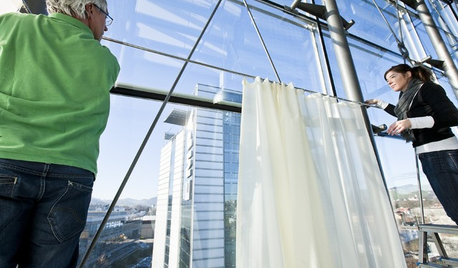
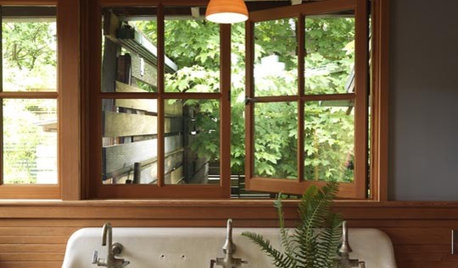
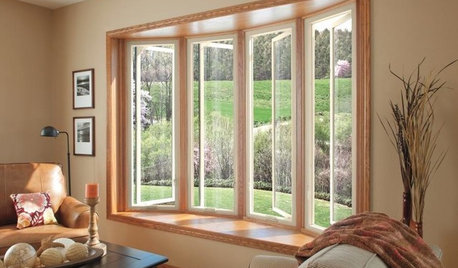
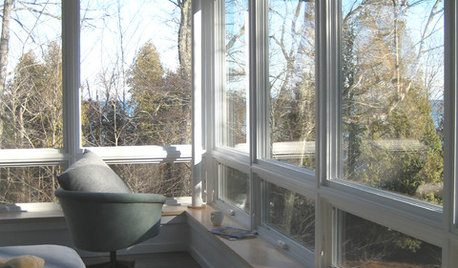
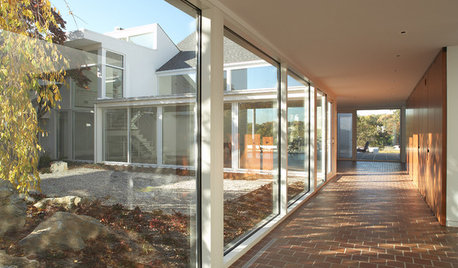
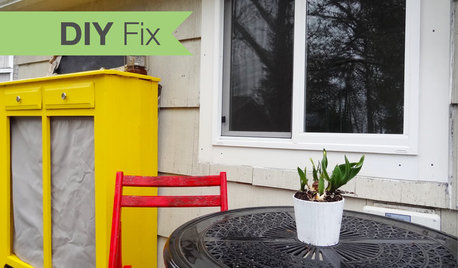
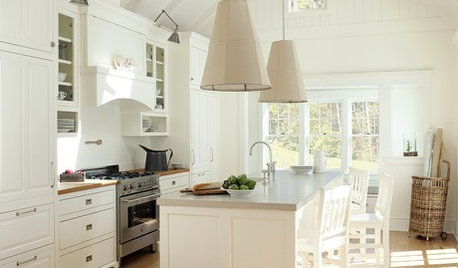
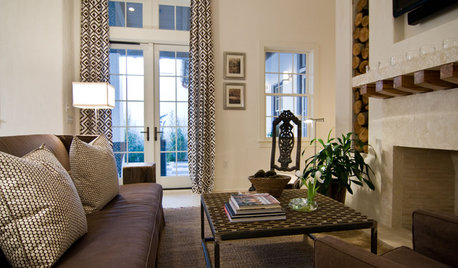









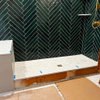


jst63